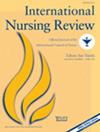Investing in the Advanced Practice Nursing Workforce to Improve Health System Responses to Armed Conflict
Abstract
Aim
To pose an argument for health systems to improve responses to armed conflict by investing in developing the advanced practice nursing workforce.
Background
Armed conflict catalyzes infectious disease, noncommunicable disease, and physical and psychological trauma. Health systems in countries at war face challenges in meeting the health service needs for affected populations while providing sufficient care for the rest of the public. Integrating advanced practice nurses into the workforce is one solution to address the demand for health services during war. Importantly, policies facilitating a quick, efficacious advanced practice nurse response during war must be in place before armed conflict arises.
Sources of Evidence
A critical narrative review of peer-reviewed articles was conducted. The review focused on the benefits of advanced practice nurses during crises and systemic policy setbacks preventing advanced practice nurse workforce development. A case study from the Israel–Hamas War is presented.
Discussion
Holistic, patient-centered care positions advanced practice nurses to care for the physical and psychological needs of the population arising from war. Evidence from other public health crises, such as the COVID-19 and H1N1 pandemics, reinforces this notion. However, common policy setbacks, such as an ill-defined scope of practice and a lack of interprofessional awareness of the role, prevent advanced practice nurses from providing care when conflict arises. Israel's policy efforts before and during the Israel–Hamas War exemplify advanced practice nursing workforce policy development that facilitated an effective response to crisis.
Conclusion
Addressing expanded advanced practice nurse authorities before conflict starts will facilitate an improved health system response.
Implications for Health Policy
Research examining the effectiveness of advanced practice nursing care quality during armed conflict will facilitate national-level investment in advanced practice nursing workforce development.

 求助内容:
求助内容: 应助结果提醒方式:
应助结果提醒方式:


